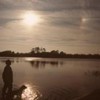Resumen
With a growing urban population and increased demands on water for recreational and agricultural purposes, Florida will have to identify a solution to its water quality and quantity issues. Although all Florida residents will play a part in conserving water in the future, the ability of Extension faculty to work with consumers and encourage new water conservation behaviors at home will be vital. This 4-page fact sheet provides information to Extension faculty about the water conservation behaviors in which Florida residents currently engage, water conservation product ownership, and public interest in water-related topics. Written by Caroline G. Roper and Alexa J. Lamm, and published by the UF Department of Agricultural Education and Communication, September 2014.
AEC505/WC169: Engaging Consumers in At-Home Water Conservation: A Guide for Extension (ufl.edu)
Citas
Corral-Verdugo, V., Bechtel, R. B., & Fraijo-Sing, B. (2003). Environmental beliefs and water conservation: An empirical study. Journal of Environmental Psychology, 23(3), 247-257. Retrieved from http://www.elsevier.com/locate/jep. https://doi.org/10.1016/S0272-4944(02)00086-5
Kalton, G., & Flores-Cervantes, I. (2003). Weighting methods. Journal of Official Statistics, 19(2), 81-97.
Odera, E., & Lamm, A. (2014). Public opinion of water in Florida. PIE2012/13-06. Gainesville, FL: UF/IFAS Center for Public Issues Education.
United States Environmental Protection Agency, Office of Wastewater Management. (2014). "Showerheads." WaterSense. Retrieved from http://www.epa.gov/WaterSense/products/showerheads.html.
UF/IFAS Extension. (2013). Shaping solutions for Florida's future: The UF/IFAS extension roadmap 2013-2023. Retrieved from http://extadmin.ifas.ufl.edu/images/lrp2.pdf

